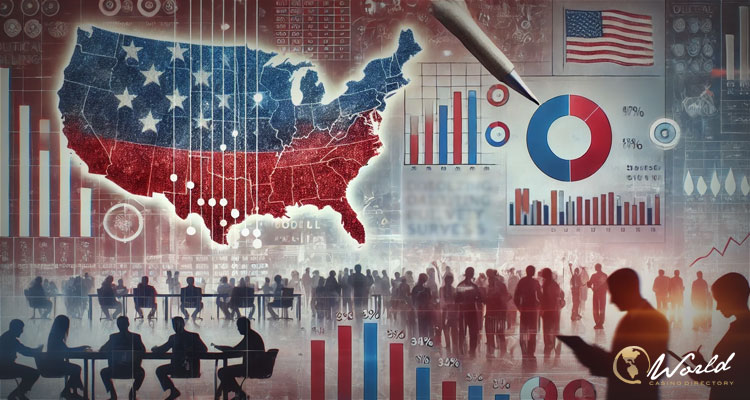In a scenario reminiscent of prior election cycles, U.S. pollsters are once again facing criticism after failing to predict the scope of Donald Trump’s triumph in the 2024 presidential election. Despite revising their methodologies following underestimations in 2016 and 2020, numerous pre-election polls suggested a tight race between Trump and Kamala Harris, with some forecasts narrowly favoring Harris. However, as the dust settled, Trump had decisively won multiple swing states, leaving pollsters scrambling to explain the unexpected outcome.
The backlash toward pollsters has been intense, with many calling into question the reliability of modern polling practices. This marks the third consecutive election where polling missteps have underestimated Trump’s appeal among voters. Various surveys conducted across key battlegrounds—including Pennsylvania, Michigan, and Arizona—had depicted a nearly even split, only for the final vote counts to reveal a clear advantage for Trump in several states.
A Missed Call in Iowa and Pollsters’ Struggles in Swing States
One prominent polling example that drew attention was a survey from the Des Moines Register, conducted by J. Ann Selzer, a reputable pollster. This poll showed Harris leading by three points in Iowa, a state where Trump ultimately claimed victory by a considerable margin. Selzer, known for her accurate forecasts in the past, stood by her data even after Trump’s team labeled it a “fake poll.” Selzer, often referred to as the “outlier queen” in the polling industry, defended her findings, but the poll’s inaccuracy underscored the recurring issues with election polling.
Historian Rick Perlstein and polling experts shared their frustrations, questioning the effectiveness of the industry, according to The Guardian. In a series of posts, Perlstein criticized polling as a “compromised enterprise” that is overly reliant on assumptions and skewed interpretations. He suggested that the public should start disregarding polls as indicators of election outcomes, noting that they often lead to misinformed expectations.
The skepticism toward traditional polling was echoed by Allan Lichtman, a historian from American University known for his election predictions using a “13 keys” system. Lichtman, who had anticipated a Harris victory, admitted his error and committed to revisiting his predictive method.
Betting Markets Showed Greater Accuracy
While many pollsters failed to anticipate Trump’s success, several online betting platforms offered a more accurate forecast, giving Trump the edge over Harris before the final ballots were counted. Platforms like Betfair, PredictIt, and Polymarket showed odds favoring Trump as Election Day approached, in stark contrast to pollsters’ projections of a tight or Harris-favored race.
Tarek Mansour, CEO of Kalshi, a major betting exchange, noted that betting markets have consistently outperformed polls in recent elections, tweeting “Polls 0, Prediction Markets 1.” Polymarket also praised its users for accurately predicting the election results, asserting that high-volume, liquid prediction markets provide insights superior to traditional polling. Polymarket’s data, alongside other betting odds from companies like Betfair and Smarkets, had Trump as the likely winner, underscoring the predictive value of betting markets where people wager on outcomes rather than simply share their preferences.
Betfair Exchange, a peer-to-peer betting platform, showed Trump with a 1.63 probability of winning, while Harris’s odds were at 2.56. These betting figures proved to be more reliable indicators of the outcome than many mainstream polls. Ladbrokes, another major betting provider, listed Trump at 8/13 odds to win the election, with Harris at 11/8.
Jon Stewart’s Scathing Critique of Polling Industry
Commenting on the polling industry’s shortcomings, comedian Jon Stewart didn’t hold back in his criticism during an Election Night episode of The Daily Show. Stewart expressed his frustration, voicing his distrust of pollsters and challenging the reliability of their forecasts. “I don’t ever want to f***ing hear from you again. Ever,” Stewart said, underscoring a widespread public sentiment that pollsters had once again let voters down.
Stewart’s remarks captured the sentiment of many voters and pundits who felt disillusioned with election forecasts. Despite being widely regarded as professional assessments, polls not only failed to deliver accurate predictions but may have contributed to misguided expectations among the public.



